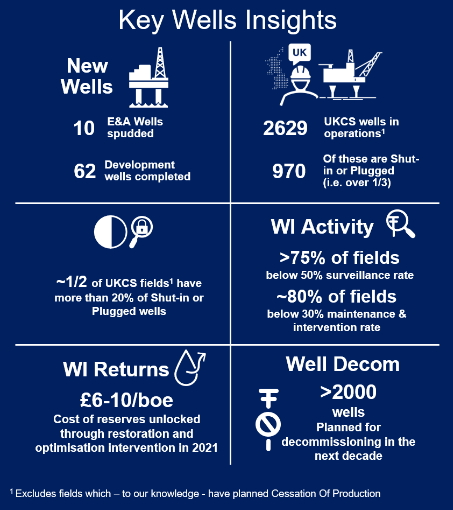So, the UK is the place to be when it comes to filmmaking, right? We have film tax credits, high-end TV tax credits, animation tax credits, Lottery funding, a skilled workforce and world-class facilities. And, from April 2014, the UK could become even more competitively priced with a fall in the cost of hiring actors. Great news eh? (Well, maybe not for unemployed actors, but more about them later.)
It’s all about social security ‘taxes’. HM Revenue and Customs (HMRC) are proposing a change to national insurance regulations, coming into effect in the next financial year, which could see producers save around 12 per cent of what it currently costs to engage actors in the UK. In fact, the headline figure should really be 13.8 per cent, which is the rate of national insurance, or social security, contribution that employers—i.e. producers—are asked to pay over and above the fee agreed with any actor, but the maths actually works out at about 12.1 per cent.
As you can imagine, employers aren’t always enamoured with the additional 13.8 per cent cost that employers’ national insurance currently imposes. Furthermore, following a change in policy by HMRC, which brought musicians within this regime, the Musicians’ Union have suggested that this additional cost to engagers has the effect of cutting jobs for its members. Other lobbyists also go so far as to suggest that it makes UK film and TV production uncompetitive and mitigates the benefits of film and TV tax credit incentives.
Currently, most UK actors are treated as self-employed for tax purposes, but employed for national insurance contributions (NIC) purposes. This means that actors get the advantages of claiming tax deductible expenses while, by virtue of their NIC status, remaining eligible for contribution- based jobseeker’s allowance when unemployed. This rather privileged position was designed to safeguard actors who are vulnerable to periods of unemployment.
There had been some exceptions to the rule outlined above; principally, so-called ‘key talent’ (‘stars’ in everyday language), certain foreign actors or where contracts were suitably drafted around these provisions; the actor would be treated as self-employed, thereby saving producers the employers’ NIC of 13.8 per cent. On the other hand, long-term contractees, such as soap stars, are usually treated as self- employed by default.
One perceived loophole in the system was for an actor to be paid through a limited company. While this meant the producer wasn’t liable for employers’ NIC, some actors are currently going through the potentially costly realisation that their own limited company probably was.

British filmmakers like Danny Boyle (above on the set of Trance) could also find their budgets buoyed by changes to NIC
The catalyst for change to the existing system has been something of a courtroom drama. The ITV Services Ltd v HMRC case has not gone well for ITV. While they argued that they should not be liable for the 13.8 per cent employers’ NIC, the judge has not only sided with HMRC but effectively extended the interpretation to include even more actors. As a consequence, key talent stars are now, apparently, employees too. At the time of writing we are awaiting the Court of Appeal’s decision, but in the meantime HMRC have decided that things do need a bit of tidying up. They have also identified some other areas that need review, specifically the rules with regard to liability for employers’ NIC on repeat fees.
HMRC’s consultation document illustrates four potential proposals to address these various issues. The first two seek to address the collection of employers’ NIC on repeat fees where rights are no longer held by the original producer. The other two proposals (options three and four) suggest removing entertainers from the employees’ NIC regime and making them liable to self-employed NIC, which would effectively mean that producers are no longer liable for employers’ NIC. This does, however, raise questions over entertainers’ entitlement to contribution- based jobseeker’s allowance should they find themselves out of work.
Option three addresses this latter point, proposing the idea of a special class of self-employed NIC, with its own rate, for actors, which would entitle them to benefits. HMRC, however, goes on to say that it prefers option four, whereby entertainers would pay standard self- employed rates of NIC. Actors’ union Equity are campaigning against option four, because of the potential loss of benefits entitlement for its members, in preference for option three. It is extremely hard to evaluate the real costs of option three, however, as HMRC has not provided a full economic impact assessment. Important questions that need to be answered include how many entertainers currently claim jobseeker’s allowance? How much would actually be saved by removing benefits? How much would an enhanced rate of Class 2 contributions be for entertainers under option three?
Elsewhere, however, the Musicians’ Union will presumably support option four, as they have previously suggested that the imposition of Class 1 contributions on musicians—following a review of policy by HMRC in response to the ITV Services Ltd case—will cost jobs. Whether option three would be acceptable for working musicians remains to be seen.
The upshot is that plenty of lobbying is likely to ensue. Equity are currently reaching out to their members and, no doubt, PACT and other interested parties will file submissions to HMRC by the deadline date of August 6, 2013.
If you’re a producer and are budgeting for a film production next summer, then you may be advised to do two versions of your budget. Maybe your fundraising is about to get easier, with less to collect. At the moment, that remains unclear. What is clear, however, is that the impact on actors and their potential entitlement to benefits is likely to be hard felt. In fact, this is where the debate is likely to focus. Unfortunately, available data does not yet give a clear indication of the financial cost and impact of benefit claims. Can actors still survive using universal credit and other means-tested benefits instead
of jobseeker’s allowance, as HMRC suggest? Just as Equity need to attempt to quantify this issue, HMRC and the Department for Work and Pensions (DWP) must try and evaluate any potential impact more fully. Whatever the outcome, however, producers should benefit, and UK production may have inadvertently just got another tax break. But, just like in the movies, we have to wait and see how it all ends.•









